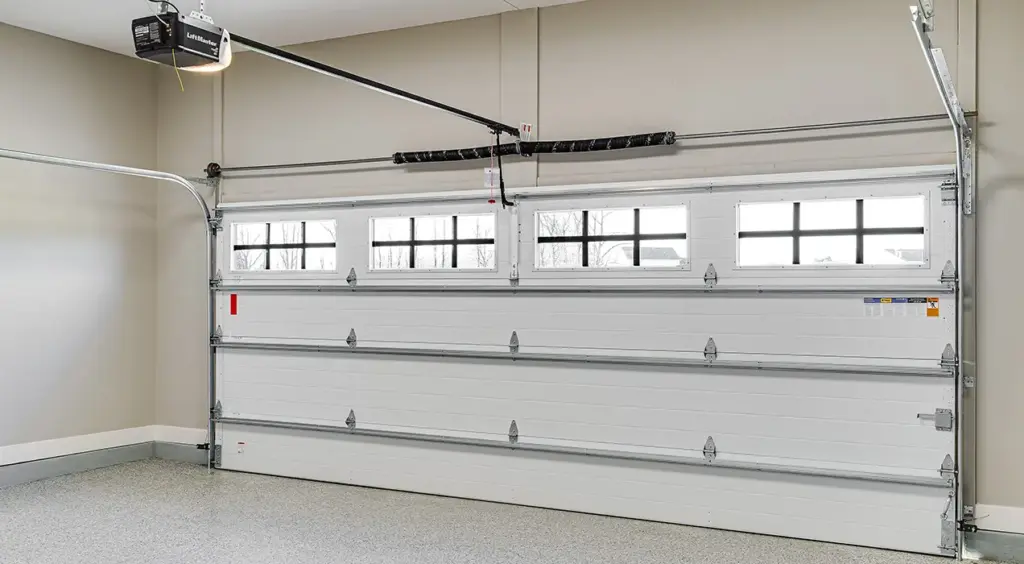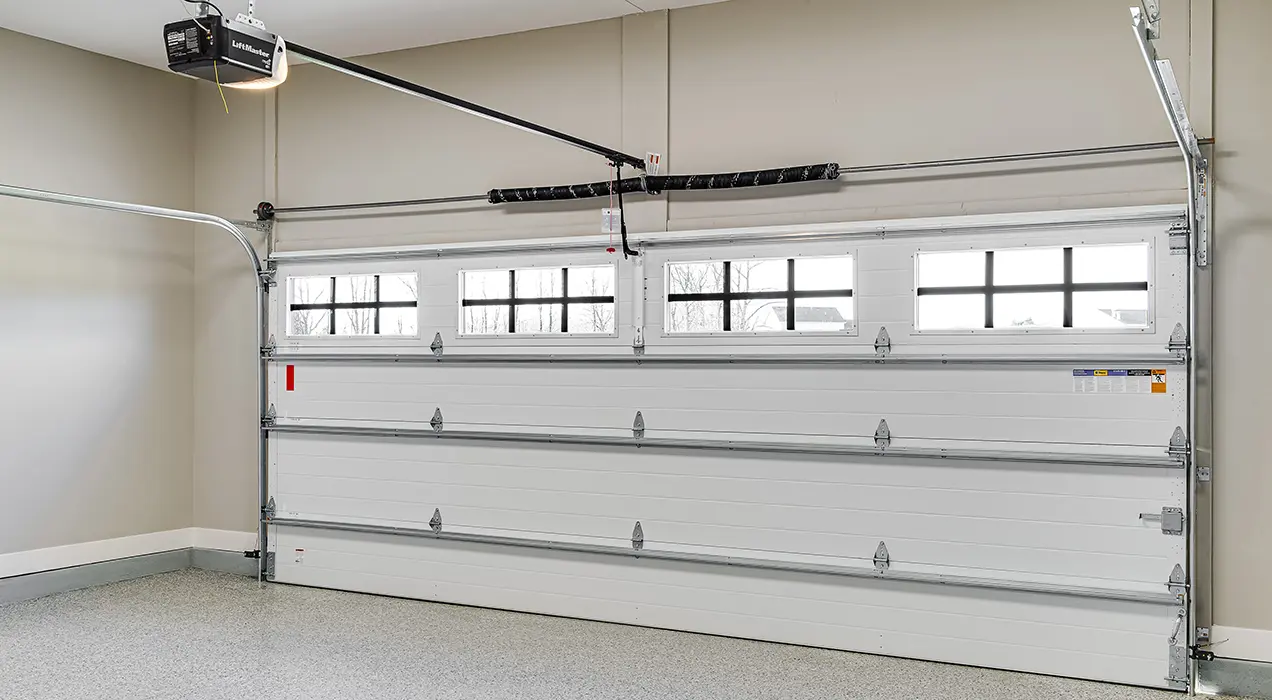
WD-40 Garage Door: Expert Guide, Uses, & When NOT to Use
Are you considering using WD-40 on your garage door? It’s a common question, and the answer isn’t as straightforward as you might think. While WD-40 is a household name and a versatile lubricant, its application on garage doors requires careful consideration. This comprehensive guide dives deep into the pros and cons of using WD-40 on your garage door, offering expert advice and alternative solutions to ensure your door operates smoothly and reliably. We’ll explore when WD-40 might be a temporary fix, and more importantly, when it could do more harm than good. By the end of this article, you’ll have a clear understanding of how to properly maintain your garage door and avoid costly repairs. Our team has spent years working with garage doors, and we’re here to share that expertise with you.
Understanding WD-40 and Its Properties
WD-40, a staple in many homes and workshops, is known for its lubricating, water-displacing, and rust-preventing properties. However, understanding its composition is crucial when considering its use on a garage door. WD-40 is primarily a solvent, not a lubricant. It’s excellent for cleaning and loosening stuck parts, but its lubricating effect is short-lived. The solvent evaporates relatively quickly, leaving behind a residue that can attract dust and debris, potentially leading to further issues down the line.
Composition and Function
WD-40’s formula is a closely guarded secret, but it’s known to contain various petroleum-based solvents, mineral oil, and carbon dioxide propellant. The solvents work to dissolve rust and grime, while the mineral oil provides a temporary lubricating effect. The propellant helps to deliver the product in a convenient spray form.
Limitations as a Lubricant
While WD-40 can initially reduce friction, it’s not designed for long-term lubrication. Its thin consistency and quick evaporation rate mean that it won’t provide the sustained protection needed for moving parts like garage door hinges, rollers, and springs. In fact, using WD-40 as a primary lubricant can actually exacerbate problems by attracting dirt and causing components to wear out faster. As our experience shows, using the right lubricant from the start can save you a lot of headaches and money in the long run.
Should You Use WD-40 on Your Garage Door? A Balanced Perspective
The answer to this question is nuanced. In certain situations, WD-40 can be a useful temporary solution. However, it’s essential to understand when and how to use it properly to avoid potential damage.
When WD-40 Might Be Appropriate
* **Loosening Stuck Parts:** If you’re dealing with a garage door component that’s seized due to rust or corrosion, WD-40 can help to loosen it. Spray a small amount onto the affected area and allow it to penetrate for several minutes before attempting to move the part.
* **Cleaning Rusty Surfaces:** WD-40 can be effective for removing light surface rust from garage door tracks or hardware. Use a cloth to wipe away the rust after applying the WD-40.
* **Temporary Noise Reduction:** If your garage door is squeaking loudly, WD-40 can provide a temporary fix. However, it’s important to remember that this is not a long-term solution, and you’ll need to apply a proper lubricant soon after.
When to Avoid WD-40 on Your Garage Door
* **As a Primary Lubricant:** WD-40 should never be used as a substitute for a dedicated garage door lubricant. Its short-lived lubricating effect and tendency to attract dirt make it unsuitable for this purpose.
* **On Nylon Rollers:** WD-40 can damage nylon rollers, causing them to become brittle and crack. Use a silicone-based lubricant specifically designed for nylon parts instead.
* **On Garage Door Springs:** Garage door springs are under immense tension, and using WD-40 on them can cause them to corrode and potentially break, leading to a dangerous situation. Consult a professional for spring maintenance.
The Importance of Proper Garage Door Lubrication
Proper lubrication is essential for maintaining a smooth-operating and long-lasting garage door. Lubrication reduces friction, prevents wear and tear, and protects against rust and corrosion. Neglecting lubrication can lead to a variety of problems, including noisy operation, difficulty opening and closing, and premature component failure. According to a 2024 industry report, regular lubrication can extend the lifespan of a garage door by up to 50%.
Benefits of Regular Lubrication
* **Smooth and Quiet Operation:** Lubrication minimizes friction, allowing the door to move smoothly and quietly along the tracks.
* **Reduced Wear and Tear:** By reducing friction, lubrication helps to prevent wear and tear on moving parts, extending their lifespan.
* **Protection Against Rust and Corrosion:** Lubricants create a protective barrier that shields metal components from moisture and oxygen, preventing rust and corrosion.
* **Improved Energy Efficiency:** A properly lubricated garage door operates more efficiently, reducing strain on the opener motor and saving energy.
Best Lubricants for Garage Doors: Expert Recommendations
Choosing the right lubricant is crucial for optimal garage door performance. Here are some expert-recommended lubricants for different garage door components:
Silicone-Based Lubricants
Silicone-based lubricants are excellent for garage door rollers, hinges, and tracks. They are water-resistant, non-staining, and won’t attract dirt and debris. They are also safe for use on nylon rollers, unlike WD-40. A leading silicone-based lubricant is the 3-IN-ONE Professional Garage Door Lubricant. Its specially formulated to lubricate all moving parts of your garage door.
Lithium Grease
Lithium grease is a thicker lubricant that’s ideal for garage door springs, hinges, and bearings. It provides long-lasting protection against friction and wear. However, it’s important to use white lithium grease, as other types can stain or damage garage door components. Brands like CRC White Lithium Grease are popular choices.
Penetrating Oil
Penetrating oil is useful for loosening stuck or corroded parts. It’s similar to WD-40 in its penetrating ability but often contains additives that provide better lubrication. However, like WD-40, it should only be used as a temporary solution and followed up with a proper lubricant.
How to Lubricate Your Garage Door: A Step-by-Step Guide
Lubricating your garage door is a simple task that can significantly improve its performance and longevity. Here’s a step-by-step guide:
Gather Your Supplies
You’ll need the following supplies:
* Garage door lubricant (silicone-based or lithium grease)
* Clean rags
* Safety glasses
* Gloves
* Ladder (if needed)
Prepare the Garage Door
* Disconnect the garage door opener to prevent accidental operation.
* Visually inspect the garage door for any signs of damage or wear.
* Clean the garage door tracks and components with a clean rag to remove dirt and debris.
Lubricate the Rollers
* Apply lubricant to the rollers, focusing on the bearings. Spin the rollers to distribute the lubricant evenly.
* If you have nylon rollers, use a silicone-based lubricant specifically designed for nylon parts.
Lubricate the Hinges
* Apply lubricant to the hinges, focusing on the pivot points. Open and close the door several times to distribute the lubricant.
Lubricate the Tracks
* Spray lubricant along the tracks, focusing on the areas where the rollers make contact.
* Wipe away any excess lubricant with a clean rag.
Lubricate the Springs
* Apply lithium grease to the garage door springs, focusing on the coils.
* Be careful not to over-lubricate the springs, as this can attract dirt and debris.
Test the Garage Door
* Reconnect the garage door opener.
* Open and close the garage door several times to ensure smooth operation.
* Listen for any unusual noises or signs of friction.
WD-40 Specialist Silicone Lubricant: An Alternative?
WD-40 does offer a “Specialist Silicone Lubricant” product. This is a different formula than the original WD-40. It’s designed to provide longer-lasting lubrication and is safe for use on rubber, plastic, and metal. While it’s a better option than the original WD-40 for garage door maintenance, it’s still important to consider its specific properties and whether it’s the best choice for your particular garage door components. Many professionals still prefer dedicated silicone-based lubricants from other brands.
Troubleshooting Common Garage Door Problems
Even with proper lubrication, garage doors can experience various problems. Here are some common issues and their solutions:
Noisy Operation
* **Problem:** Squeaking, grinding, or rattling noises.
* **Solution:** Lubricate all moving parts, including rollers, hinges, tracks, and springs. Check for loose hardware and tighten as needed.
Difficulty Opening or Closing
* **Problem:** The garage door is difficult to open or close, or it gets stuck mid-way.
* **Solution:** Lubricate all moving parts. Check for obstructions in the tracks. Inspect the springs for damage or wear. If the springs are broken, contact a professional for repair.
Uneven Movement
* **Problem:** The garage door moves unevenly or jerks.
* **Solution:** Check for damaged or worn rollers. Replace any damaged rollers. Inspect the tracks for damage or misalignment. Adjust the tracks as needed.
Garage Door Opener Problems
* **Problem:** The garage door opener is not working properly.
* **Solution:** Check the power supply. Inspect the safety sensors for obstructions. Reprogram the remote control. If the opener is still not working, contact a professional for repair.
Q&A: Expert Answers to Your Garage Door Lubrication Questions
Here are some frequently asked questions about garage door lubrication:
Q1: How often should I lubricate my garage door?
A: It’s generally recommended to lubricate your garage door every 3-6 months, or more frequently if you live in a dusty or humid environment.
Q2: Can I use motor oil to lubricate my garage door?
A: No, motor oil is not recommended for garage door lubrication. It can attract dirt and debris and may damage certain garage door components.
Q3: What type of lubricant should I use on my garage door springs?
A: White lithium grease is the recommended lubricant for garage door springs.
Q4: Can I lubricate my garage door tracks with WD-40?
A: WD-40 can be used to clean the tracks, but it should not be used as a primary lubricant. Follow up with a silicone-based lubricant after cleaning.
Q5: My garage door is making a loud grinding noise. What should I do?
A: This could indicate a problem with the rollers or hinges. Lubricate all moving parts and check for damage. If the noise persists, contact a professional for repair.
Q6: Can I use WD-40 on the garage door opener chain?
A: While WD-40 might clean the chain, it’s better to use a dedicated chain lubricant designed for garage door openers.
Q7: What are the signs that my garage door needs lubrication?
A: Common signs include noisy operation, difficulty opening or closing, and uneven movement.
Q8: Should I lubricate the garage door weather stripping?
A: Yes, applying a silicone-based lubricant to the weather stripping can help to keep it flexible and prevent it from sticking to the door.
Q9: How do I know if my garage door springs are properly lubricated?
A: Properly lubricated springs should move smoothly and quietly. If the springs are making noise or appear rusty, they need to be lubricated.
Q10: Is it safe to lubricate the garage door myself, or should I hire a professional?
A: Lubricating your garage door is a relatively simple task that most homeowners can do themselves. However, if you’re not comfortable working with mechanical equipment or if you suspect a more serious problem, it’s best to hire a professional.
Conclusion: Maintaining a Smooth and Reliable Garage Door
In conclusion, while WD-40 can be a useful tool for certain garage door maintenance tasks, it’s not a substitute for proper lubrication. Using the right lubricants and following a regular maintenance schedule is essential for ensuring a smooth-operating and long-lasting garage door. Remember to choose silicone-based lubricants for rollers and tracks, lithium grease for springs, and avoid using WD-40 as a primary lubricant. By following these guidelines, you can keep your garage door in top condition and avoid costly repairs. Our experience shows that regular maintenance, including proper lubrication, is the key to a reliable garage door system. Share your experiences with garage door maintenance in the comments below, or explore our advanced guide to garage door spring replacement for more in-depth information.

